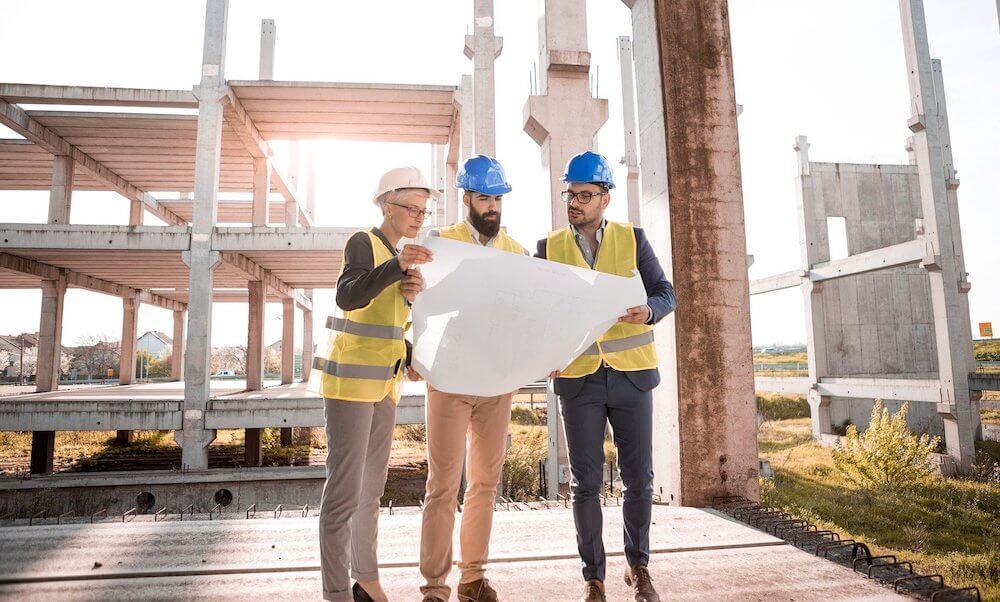Real Estate
What to Know Before Buying Properties

Did you know that in the US, home values have increased more than 50% since 2016, and there are over 50 million rental homes? Since the pandemic, more people are choosing to invest in real estate.
It can be overwhelming initially if you’re looking at buying properties for personal use or rental purposes. The good news is you just need to know where to begin, and the rest of the process will be much more straightforward.
Keep reading this guide to learn what you should know before you buy a property!
Know How Much You Can Afford
Before you buy a house, you’ll need to get a handle on your debt-to-income ratio (DTI).
Your DTI is the percentage of your monthly gross income that you spend on monthly debt obligations. These debts include credit cards, student loans, and car loans.
Lenders also use your DTI to assess your creditworthiness. Ideally, you’ll need your DTI to be 36% or less. Otherwise, you may have trouble securing a loan.
Secure Your Down Payment
Securing a down payment can be one of the biggest challenges of buying a home.
Most people aren’t able to save up a lump sum of money to put into purchasing a home and need to look at other options. These options could be borrowing from family or looking for programs that offer different down payment requirements.
Most states offer programs combining down payment assistance plans with low-interest rate mortgages, so you’ll need to do your research.
Determine Much You Can Borrow
Before looking at properties, you’ll need to know how much you can borrow. It’s best to have a mortgage preapproval as it shows home sellers you’re serious about buying.
If you’re buying your first property, you can look at government-sponsored loan programs for first-time home buyers, like a Federal Housing Administration (FHA) loan. An FHA loan allows you to buy a home with a lower down payment as long as you qualify.
You’ll need to consider a conventional or hard money loan to make a rental property investment.
If you’re older than 62, looking into a reverse mortgage is a good idea. Reverse mortgages allow you to access the equity in your home and use the money to make other purchases.
You can discover more here about reverse mortgages.
Know Your Local Real Estate Market
Now that you have your finances in order, you’ll be able to evaluate the condition of the local real estate market.
You can do this by checking market reports from local real estate agencies. These reports will give you an idea of the demand for homes, how many homes are currently for sale, and the home prices in your area.
You’ll also get a good idea of how long homes are on the market before they sell.
Doing this gives you a better idea of your competition and what type of home you can buy with your financing.
Have a Plan in Place Before Buying Properties
Before buying properties, you’ll need to have a solid plan in place. Knowing your finances and assessing the local market are key to your success.
Finding a reputable real estate agent to help you further evaluate the market is also wise.
For more real estate and home tips, make sure to check out the rest of our blog today!
Real Estate
5 Budgeting Tips For Your Home Maintenance Needs


A home’s systems and appliances play a critical role in daily life, so it’s important to make sure they are performing as needed. Keeping track of the system’s age and any past repairs can help you anticipate future costs.
Experts recommend saving at least 1% of your home’s value per year to prepare for maintenance costs. However, this can vary depending on your home’s exact location. Better options include home warranty policies that can save a lot of money on costly repairs.
- Set a Goal
Keeping up with regular maintenance can lessen the need for costly repairs in the future. However, emergencies will inevitably arise and it’s important to prepare for them.
Many experts recommend saving 1 to 2% of your home’s value each year to cover unexpected expenses like a new roof or appliances. But, this number might not work for every budget.
A better option is to save a set amount each month for your home maintenance needs. This can help you avoid dipping into emergency savings and minimize your chance of going into debt to pay for unexpected repair costs. When setting up your budget, remember why you started and keep your goals in sight. This will help you stay motivated even on those days you don’t feel like budgeting.
- Set a Time Frame
Performing regular maintenance helps to keep everything in good working order. Even small fixes like caulking the tub and cleaning out the gutters can help prevent serious problems down the line.
Make a list of all the tasks that need to be completed and determine how often they should be done. It’s important to create a schedule that accounts for both the indoor and outdoor maintenance needs of your property.
Set reminders and use a calendar or list app to help you stay on track. If you prefer paper, try a notebook with dedicated spaces for each task.
- Make a Checklist
Keeping up with home maintenance tasks can be challenging, and it’s easy to miss important chores. Creating a checklist is a great way to keep track of these tasks and ensure they are completed on a regular basis.
Performing regular maintenance on your home can help prevent future damage and save you money. For example, cleaning out your dryer ducts each month can drastically reduce the risk of fires caused by lint buildup.
Similarly, resealing your windows can help increase the insulation of your home,
reducing how hard it has to work to maintain a comfortable temperature. This can save you a significant amount on energy bills in the long run.
- Make Small Contributions
When you save money for home repairs, it’s important to start small. Adding a few dollars a month to your savings can help ease the upfront cost of major projects like a new roof, sewer upgrade, or replacement appliances and systems.
Financial experts generally recommend homeowners set aside 1%-4% of their property’s value for upkeep and repairs. However, this number may vary depending on the age of your home and its current condition.
Consider opening a separate savings account to make it easier to resist the temptation to withdraw this money for other expenses. You can also use a budgeting app to track your spending and make it easier to stick to a savings plan. Try Experian Boost(r) to see how saving for home maintenance can impact your credit score.
- Set Up a Savings Account
As a homeowner, it is important to set aside money for routine maintenance and emergency repair expenses. A savings account is a good place to keep these funds. It’s also important to use an account that is easy to access, like a high-yield savings or money market account.
Many experts recommend saving 1%-4% of your home’s value. This method takes into account the age and condition of your house. It’s also a good idea to budget for one-time costs, such as lawn care and snow removal.
If you are planning on replacing your roof, for example, calculate how much it will cost and save accordingly. This will help you avoid hefty borrowing expenses. You should also consider the average yearly expenses for other maintenance items, such as HVAC repairs and paint touch-ups.
Real Estate
A Step-By-Step Guide to Building Your Own Commercial Property


Owning a commercial property might be a prudent investment in today’s thriving economic environment. It gives you security and control over the location of your company, and it can also provide rental money. However, creating your business property is a difficult task. It necessitates meticulous preparation, close attention to detail, and in-depth knowledge of the building procedure. This comprehensive guide will guide you through the necessary processes to construct your business property.
1. Define Your Purpose and Budget
Setting a purpose and budget for the construction of your business property is the first and most important phase. You must have a distinct idea of the kind of property you want and the purpose for which it will be used. Will it be a mixed-use building, a retail store, or an office building? Take into account the location, scale, and particular needs of your company. Additionally, you need to decide on your budget and set aside money for all project costs, from land acquisition to building.
2. Find the Right Location
Regarding commercial real estate, location is the most important consideration. The success of your property hinges on how visible, approachable, and close to your target market. Make sure the zoning laws in the area you choose are in line with your planned use by researching the places that are appropriate for your type of business. If you’re looking for the help of professionals, you might want to think about hiring local architects, such as a commercial architect in colorado if you live in CO, who are aware of the area’s construction standards and regulations.
3. Assemble Your Professional Team
A committed team of experts is needed to walk you through the challenging process of commercial property construction. Architects, engineers, contractors, and legal counsel should all be important components of your team. These professionals will make sure that your project is created effectively and safely and complies with all legal criteria. Prioritize credentials and standing when picking professionals, and don’t be afraid to enlist referrals.
4. Obtain Necessary Permits
You will need to obtain the necessary permits and authorization from the government in the local area before you can start construction. These permits could include zoning permits, building permits, permits for conducting environmental impact assessments, and perhaps more. The procedure can take a lot of time, but it is necessary to guarantee that your project is in accordance with all of the rules and regulations.
5. Design Your Commercial Property
During the design process, your concept will start to take concrete form. Your property’s architects will collaborate closely with you to develop comprehensive designs and blueprints for your commercial establishment. This stage requires thoughtful consideration of the building’s aesthetics, layout, materials, and function. Incorporating sustainability measures and energy-saving features is also a chance to do something both economically advantageous and environmentally responsible.
6. Choose a Reputable Contractor
It is essential to the success of your commercial property project that you choose the best possible contractor. Try to find a reliable contractor who has a history of delivering high-quality work on time and without exceeding the allotted cost. Make sure you get numerous quotations and then compare them so that you can make an educated choice. To further protect your interests, check that the contractor possesses all the necessary credentials, including a license, a bond, and insurance.
7. Start Construction
It’s time to break ground and begin building once you’ve secured all the permissions, your design drawings are ready, and you’ve decided on a contractor. Site preparation, foundation work, structural framing, and interior finish-out are all included in this phase. Regular site visits and communication with your contractor will keep you updated on the project’s progress and enable you to handle any unforeseen difficulties that can appear.
8. Inspections and Quality Control
It is imperative to carry out inspections to ensure that the property satisfies all requirements outlined in the applicable building rules and regulations as construction draws to a close. These inspections might look at the environmental regulations, the structural integrity, the safety features, the electrical and plumbing systems, and more. Take care of any problems that can crop up during inspections in order to guarantee that your property is ready to be occupied.
Conclusion
It takes extensive planning, teamwork with experts, and attention to legal and regulatory standards to construct your commercial property. The procedure can be challenging, but with the appropriate team and a focused vision, you can produce something that will be a benefit for your company. Remember the value of location, subject-matter expertise, and meticulous project management as you proceed on this trip. You can successfully create and manage your business property by following these procedures and working with qualified experts.
Sources:
https://navimumbaihouses.com/blog/news/top-six-tips-for-building-your-own-commercial-property/
https://www.marchassociates.com/2018/6/26/5-things-you-must-consider-before-constructing-a-commercial-building/%20
https://www.indeed.com/career-advice/career-development/what-is-commercial-building
Real Estate
What is the Recommended Frequency for Masonry Maintenance in Your Building?


Masonry buildings are constructed using masonry materials. Masonry, also known as brick and block, is one of the oldest building materials on earth. It has been used for thousands of years to construct homes, churches, schools and other structures. The durability and fire resistance of masonry make it ideal for many types of buildings and applications. However, you need to maintain your building regularly so that it can last longer without any problems.
Masonry buildings are constructed using masonry materials.
Masonry buildings are constructed using masonry materials. These include stones, bricks, concrete blocks and other similar products. Masonry is used for walls, floors and roofs of buildings to make them strong and durable. It is also an excellent insulator against heat transfer between inside and out during summer months.
Why is Frequent Maintenance Necessary?
Masonry is a natural material that can absorb water. If you don’t maintain your masonry, it could become unsafe. Masonry may crack or crumble if it’s exposed to moisture for too long and without proper care.
You should perform maintenance on the exterior of your building every 3-5 years in order to keep it looking great and functioning properly throughout its lifespan.
How often you should maintain your building depends on its type and use.
How often you should maintain your building depends on its type and use.
- For example, if your building is new and hasn’t been in use for very long, then it might not need any maintenance at all right now. However, as time goes on and more people start using the building regularly, or if there are weather conditions that affect masonry (like rain), then it would be a good idea to start thinking about maintenance sooner rather than later so that any potential problems can be fixed before they become major ones.
- Similarly, if the structure has been around for several years without any major issues cropping up then there may not be much reason to start thinking about doing some work on it right now either – but again: depending on where you live/what kind of climate conditions exist there could come a point when these kinds of issues arise anyway!
How to Maintain Your Building
- Use masonry contractors. If your building is in need of maintenance, it’s best to use a professional masonry contractor who has experience with the type of materials used in your structure. This person can determine what repairs are needed, how long they will take and how much they’ll cost.
- Keep an eye on the building’s condition. Making sure that your building stays in good shape requires regular inspections by professionals or knowledgeable members of your staff or both! Regular inspections will allow you to identify issues early on before they become major problems down the line, which means less money spent overall on repairs later on because all problems have been taken care of before they become serious issues.
- Keep building materials in good condition: Make sure there aren’t any cracks or holes in any walls or floors; check doors and windows regularly (especially around hinges); look out for signs like peeling paint or mold growth that might indicate water damage has occurred somewhere inside; check ceilings regularly for signs like stains due to condensation buildup caused by poor insulation quality levels within insulation material layers themselves – this means something needs changed about those particular areas so moisture doesn’t continue collecting elsewhere throughout other parts.
We recommend that you contact a professional masonry contractor to perform routine inspections and repairs on your building. The frequency of maintenance will depend on the type of material used, how often it’s exposed to weather and other elements, as well as the use of the building. If you have any questions about how often your building should be maintained, please contact us today!
-



 Biography5 years ago
Biography5 years agoJacqulyn Elizabeth Hanley is the Mother of Liza Soberano?
-



 Home4 years ago
Home4 years agoEpson L3110 Driver Free Download Latest Updated Version
-



 Games3 years ago
Games3 years agoBest Free To Play MMORPG To Try This 2021
-



 Biography5 years ago
Biography5 years agoAmanda Levy Mckeehan Biography, Family, Net Worth, Age, Affairs, Facts
-



 Biography5 years ago
Biography5 years agoWho is Rose Dorothy Dauriac? Scarlett Johansson Daughter?
-



 Biography5 years ago
Biography5 years agoJessica Ditzel Secret Information that Nobody Knows | Joe Rogan’s Wife
-



 Biography5 years ago
Biography5 years agoWhat is the relation of Nathaniel Larry Osorno with Liza Soberano?
-



 Home5 years ago
Home5 years agoLiza Soberano Biography, Age, Family and Boyfriends































